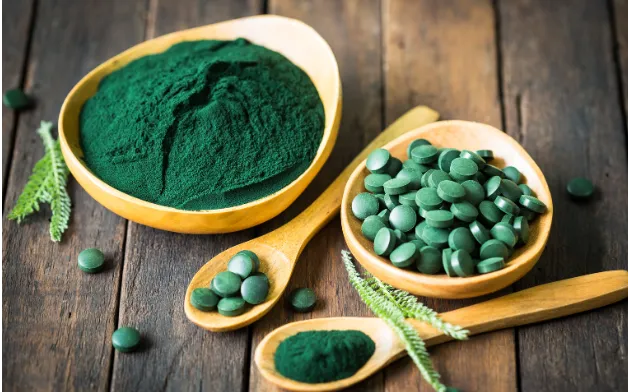Unless you've been living in a cave without wifi for the past four years, or you still vote Democrat (Shame on you—Tulsi Gabbard has a book out with your name on it.), you know that the proven treatments for all things Chinese coronavirus do NOT include experimental mRNA products, Remdesivir, ventilators, or sitting at home until you stop breathing. We now have four years of solid evidence for the efficacy of repurposed drugs like hydroxychloroquine, ivermectin, and azithromycin, especially when certain supplements are added to the mix (zinc, vitamin D, and NAC, for example).
Recently published research in Frontiers in Immunology reveals a shocking finding: Spirulina saved the lives of every hospitalized coronavirus patient. A randomized controlled trial with 189 patients found that not one patient given high-dose spirulina for six days died, while 15% of patients not given spirulina died. Apparently, spirulina is a potent life-saving agent for those with severe symptoms from coronavirus infection.
Health Benefits of Spirulina
anti-inflammatory
antioxidative
nutrient rich (vitamins and minerals)
cardio-protective (triglyceride and LDL-lowering)
Spirulina is known to have potent anti-inflammatory and antioxidative effects. Since 2020, drugs that have shown reliable benefits in treatment generally display anti-inflammatory or antioxidative properties. This may explain spirulina's efficacy as well. The study's authors noted the spirulina subgroup had significant reductions in blood inflammatory markers and higher oxygen levels, compared to the non-spirulina subgroup.
Spirulina is a form of blue-green algae that is particularly rich in beta carotene, B-complex vitamins, vitamin E, manganese, copper, zinc, and selenium, all important substances for proper immune system functioning. For this reason, it is also effective at preventing coronavirus infection. A previous study that tracked participants for six months found those who took six grams a day of spirulina were far less likely to get sick—only 14% compared to 74% who did not take spirulina. Those who did get sick had only mild symptoms, with none requiring hospitalization, compared to one-fifth of the sick non-spirulina patients who were sent to the hospital.
A side benefit of spirulina use appears to be cardio-protection. Thanks to the presence of an essential fatty acid called gamma-linolenic acid, those who take spirulina regularly at just one gram a day show a decrease in triglyceride and low-density lipoprotein ("bad" cholesterol) levels after three months.
Taking large amounts of spirulina can cause GI upset, headaches, and insomnia. It's also not recommended for those with autoimmune conditions. Some people find the taste unappealing as well. Most important, though, is sourcing spirulina from a trusted brand to ensure it hasn't been adulterated with heavy metals and other environmental toxins.
Below is a link to my coronavirus infection supplement plan I provide my patients. I am now sharing it with my Dissident MD subscribers. To access the plan, you must first create a free patient account at Fullscript by entering your name and email address: Dr. Mark McDonald’s Fullscript dispensary.









Member discussion